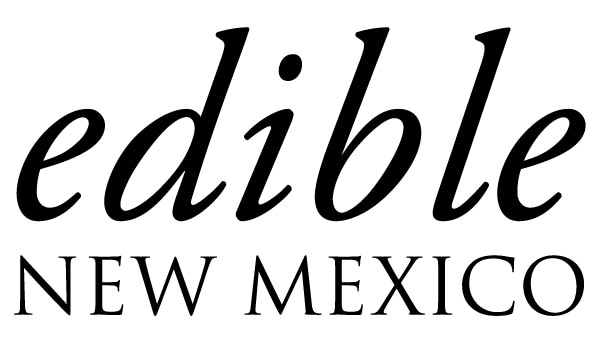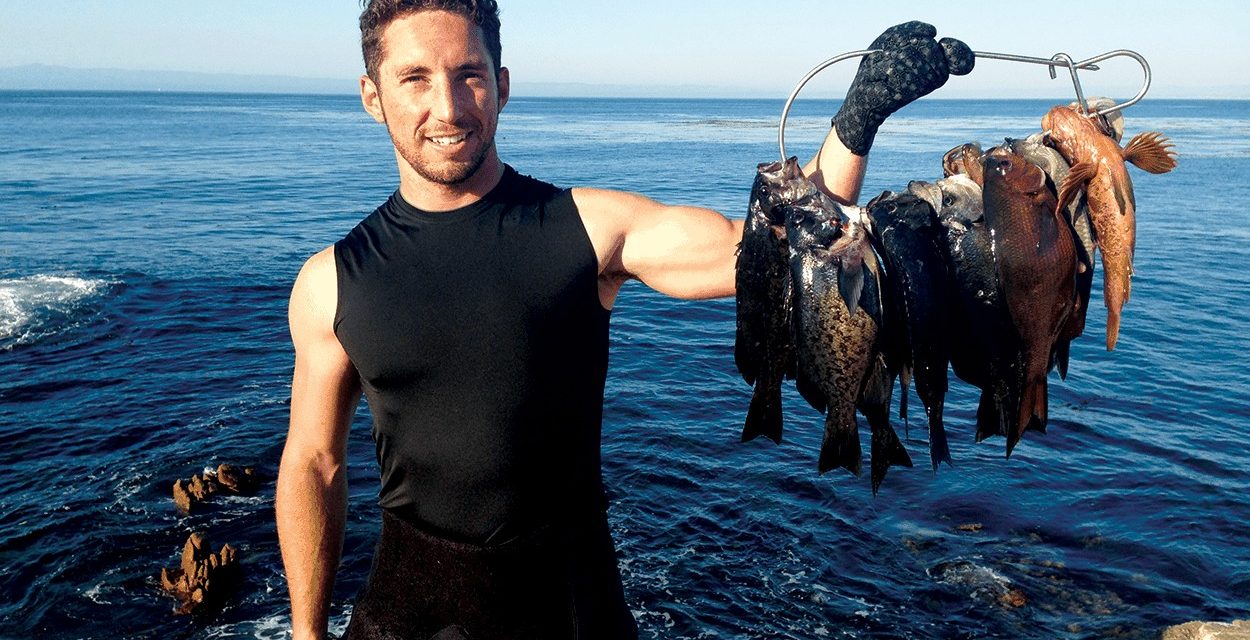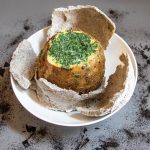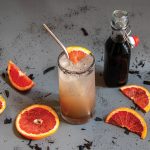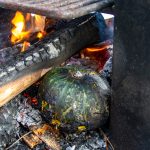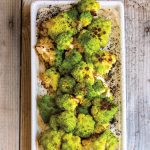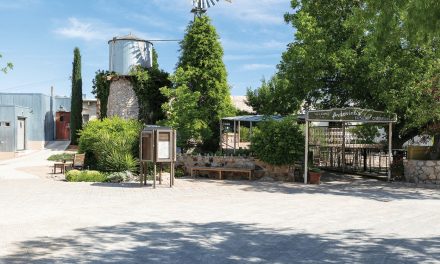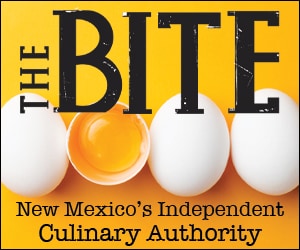One·For·Neptune Brings Fish Jerky to the Desert
By Michael Dax

Nick Mendoza with a fresh catch of rockfish. Photo by George Parish.
The first time I met Nick Mendoza, he was standing behind the kitchen counter at a mutual friend’s house party. Three large aluminum bags sat in front of him, and as I wandered in his direction, he eagerly offered me a taste of fish jerky. “When you say ‘fish jerky’ most people wrinkle their nose,” Mendoza admitted to me later. “But they’re interested enough to taste it and that surprise of the flavor is enough.”
I fit his characterization perfectly, and after a couple samples of the three flavors—honey lemon ginger, Cajun, and Norse smoke—I was hooked. Mendoza and his company, OneForNeptune, had just returned from the Fancy Food Show in New York City, where Massimo Bottura, owner and operator of one of the world’s top-ranked restaurants, chose OFN’s fish jerky as a top pick among thousands of entries.
Mendoza, who began making fish jerky last year in home experiments in Santa Fe, was overwhelmed. The company had just finished their first round of fundraising and already had an agreement from SnackNation to include their product in the delivery service’s healthy mail-order snack boxes. OneForNeptune is still in its beginning stages, slowly expanding to more retail outlets while also selling the jerky through its website. But beyond being just a tasty snack, the company is contributing to a shift in the seafood industry—bringing transparency to and eliminating waste from one of the most inefficient sectors of our food industry.
Mendoza grew up splitting time between San Diego, California, and his grandparents’ ranch in the Gila region of southwest New Mexico, where he worked during the summers—a “surf-and-turf upbringing,” as he describes it. Early on, he developed an affinity for the ocean, and he initially chose a career in marine fisheries science, working as a researcher in sustainable aquaculture in Monterey, California. But after a few years, he didn’t feel as if he were making a meaningful difference, and on a whim, he quit his job and returned to the Gila.

Nick Mendoza experimenting with various fish species and recipe blends in his Santa Fe kitchen.
At first, he tried to establish connections in the farm-to-table market, hoping to sell his family’s grassfed beef directly to restaurants in Santa Fe, but he quickly turned to the idea of beef jerky, itself a trendy product, especially for locally raised beef. While mending fences on the ranch one day, it occurred to Mendoza to bring together his ideas for jerky with his passion for sustainable aquaculture.
He already owned a commercial dehydrator, and had recently moved to Santa Fe, where he eventually made his first batch of fish jerky in May 2017. “It was completely inedible,” laughs Mendoza. But employing his scientific background, Mendoza continued his experimentation, changing small aspects of the recipe with each batch and meticulously recording the results.
Giving a nod to the Vikings who relied on dried fish for their long journeys, Mendoza’s first flavor was Norse Smoke, seasoned with sea salt and juniper berries left over from the production of Wheeler’s gin from Santa Fe Spirits. By October, he was ready to share it beyond his circle of family and friends, and brought it to a food festival in Palo Alto, California, where his hundreds of samples were gone within an hour.
Since the beginning, Mendoza opted to use rockfish and other common white fishes, due to their leanness and comparably low oil content, which makes them good for drying. Also, according to Mendoza, “They are a blank canvas, of sorts, and take really well to the flavor profiles that we have created.”
But beyond its utility, Mendoza chose these fish as a way of combating inefficiencies in the notoriously opaque and wasteful seafood industry. While a healthy market for rockfish once existed, the fish declined in the 1980s and 1990s. Although the fish’s population has rebounded, markets and tastes have moved on. “There’s a huge supply and demand issue with the rockfish we source,” says Mendoza. “Fishermen are catching a lot more than the market wants.” And as a result, more and more rockfish have become by-catch and are often either castoff (thrown back into the ocean) or turned into pet food or fertilizer.
In addition to opting for species that might otherwise be discarded, Mendoza hopes to further transparency within the industry, which according to one study in Canada sees more than fifty percent of fish mislabeled. On top of that, the Food and Drug Administration inspects less than two percent of fish entering the United States, and seafood is often traded at sea, making it difficult to know where it was caught and who caught it.
To advance this kind of transparency, every package of OneForNeptune will include a QR code that will allow consumers to connect to the “Find my Fish” app that provides details such as information about the fishery, the name(s) of the fishermen, the coordinates where it was caught, and the type of fish.
As a marine scientist, Mendoza sailed several voyages conducting research aboard a brigantine-style tall ship. These sailors continue to honor and recognize superstitions and traditions developed over hundreds of years, one of which requires a ritual toast to the Roman god of the sea, Neptune. On the eve of a journey’s end, the captain gathers the crew and pours the first drink of the night into the sea as an offering and cheers to safe passage. OneForNeptune is seeking to honor the spirit of this ceremony, and as it grows will continue to inspire a healthy, sustainable relationship to the ocean.
Edible celebrates New Mexico's food culture, season by season. We believe that knowing where our food comes from is a powerful thing. With our high-quality, aesthetically pleasing and informative publication, we inspire readers to support and celebrate the growers, producers, chefs, beverage and food artisans, and other food professionals in our community.
